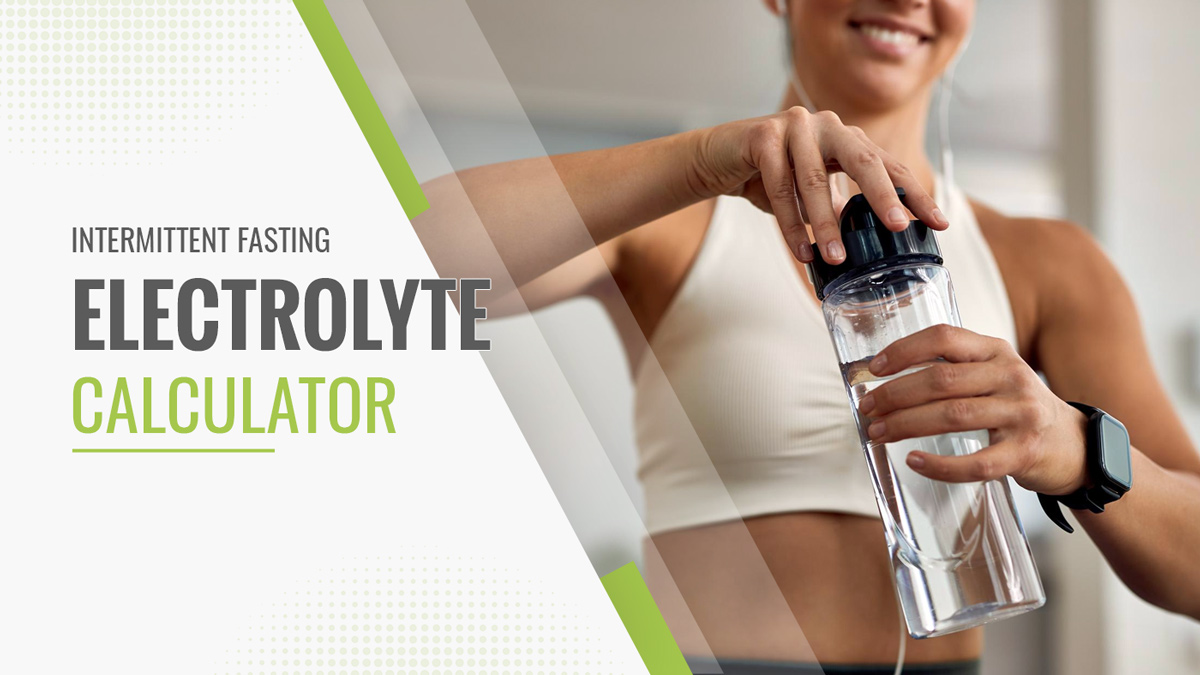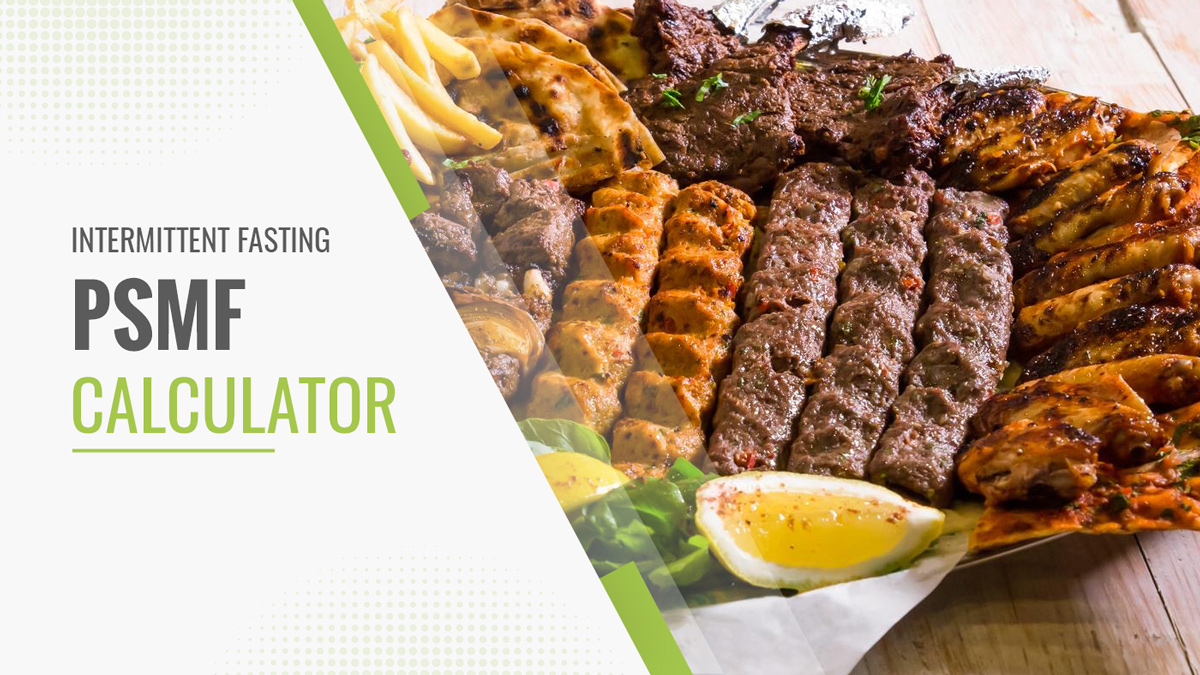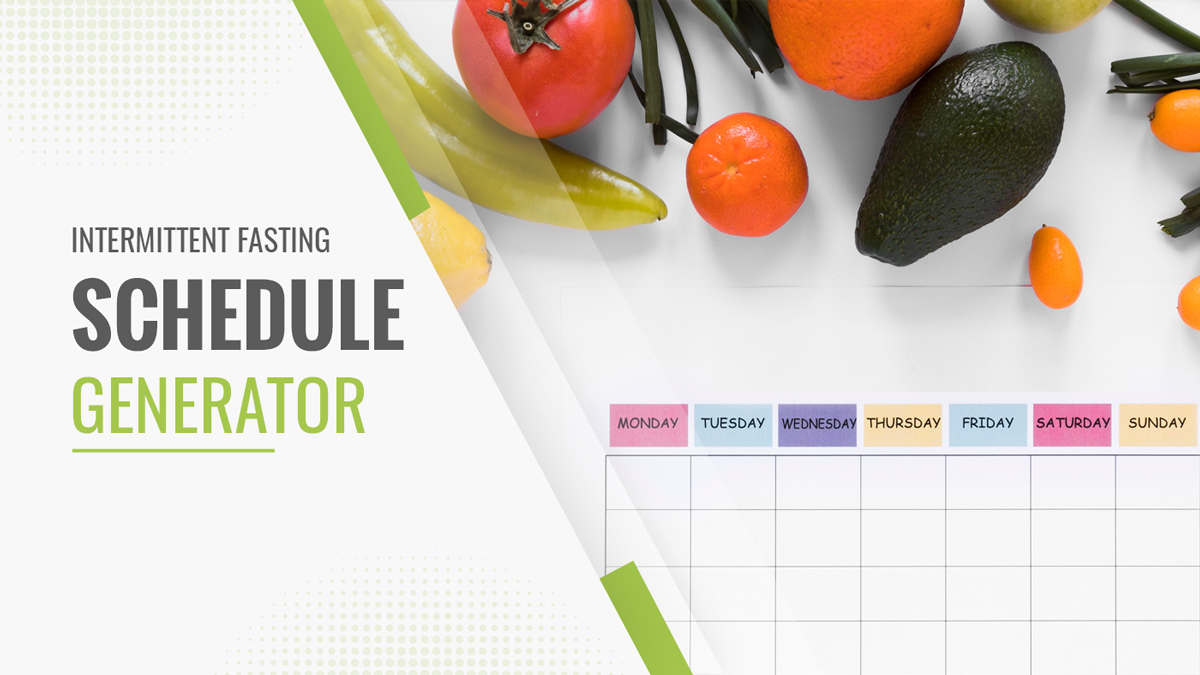Remember those times when people had to walk or bike to work? Only some had a car, and there were no food delivery apps.
We are living in the 21st Century. We have cars, televisions, smartphones, and a completely different lifestyle. Most of us spend eight-plus glued to a chair and a computer. Although we are busier, our lifestyle has turned sedentary. Junk food, desk jobs, increased stress levels, decreased physical activity, etc., have led to significant health issues, especially weight gain. The growing problem of obesity has given rise to a new trend — dieting.
Most people know about at least one fad diet. Many of these are temporary fixes, and you will regain weight soon after you stop. Some of them are so crazy that you will question the sanity of those who came up with them and those who are desperate enough to try them. Ever heard of the baby food diet or the cotton ball diet?
Calculate Your Autophagy Timeline
Find out exactly when your body enters autophagy based on your unique profile, diet, and fasting protocol.
Calculate My Autophagy Window →With so many diet fads, it’s essential to differentiate between the good, the bad, and the ugly. Every diet that can lead to weight loss cannot be deemed healthy. Among the few diets that offer a healthier lifestyle are intermittent fasting and the small-meal diet. Both follow different approaches to health, calorie counting, and meal plans. Selecting the right diet plan can be difficult for someone unfamiliar with the subject. Before you pick one, let’s get acquainted with them.
What is Intermittent Fasting?
Intermittent fasting involves cycling between eating and fasting windows. [1]
It has no rules or restrictions on what you eat. You can consume water or herbal teas during the fasting period. Although popular in religions like Christianity, Hinduism, Jainism, Islam, and Judaism since time immemorial, fasting has gained traction as a weight loss regimen in the last 10 years.
Here are some popular intermittent fasting methods:
The 16/8 Method
Hugh Jackman was one of the first to popularize this form of intermittent fasting. Out of the 24 hours in a day, you fast for 16 hours and eat during an eight-hour window.
To keep things simple, most people just skip a meal.
Skip breakfast if you hate going to bed hungry. You won’t gain weight by skipping “the most important meal of the day.” [2]
Like Kourtney Kardashian, skip dinner if you need extra fuel for your morning workout. Most people choose to eat between 11 a.m. and 7 p.m. That way, you can grab a late breakfast. This is the most common type of intermittent fasting. It is sustainable and has the celebrity stamp of approval.
[Related: All you need to know about Intermittent fasting]
The 5:2 or Fast Diet
This weekly diet plan involves fasting for five days and restricting yourself to 500-600 calories a day for two non-consecutive days. Learn more about 5:2 diet here.
One Meal a Day (OMAD)
OMAD is an over-the-top fasting form in which people eat a single meal daily. Sounds extreme? Yeah. But some people prefer it anyway.
Alternate-Day Fasting
You guessed it. People fast for 24 hours every other day. Like OMAD, it is not recommended in the long run.
A slight variation of this is the Eat-Stop-Eat diet, in which people fast the entire day once or twice a week.
[Related: Alternate-Day fasting Vs. OMAD]
What are Small Meals?
In this dietary pattern, you have 6 to 10 smaller meals at regular intervals throughout the day. Unlike Intermittent fasting, this diet is strict on what and how much food is consumed in every meal.
The daily calories consumed are divided into several smaller meals. The food consumed in each meal should be nutrient-rich. No processed food, added sugars or saturated fat should be taken with any meal. Unlike Intermittent fasting, you can stick with this eating style without any negative consequences. It is a keeper for the long haul.
On one side, we’ve got the classic two-meal approach; on the other, we’ve got the tantalizing option of enjoying five or more bite-sized meals. It’s a calorie showdown. So, which diet should you embrace?
There is nothing more revealing than a handy pros-and-cons list. Let’s dive in and find out!
Pros and Cons of Intermittent Fasting
Below are the pros and cons of intermittent fasting:
Pros:
- Insulin Resistance: Insulin helps lower blood sugar levels by shuttling glucose to cells for energy or storage as fat. When we overeat, our body cranks up insulin production, leading to insulin resistance, where cells become less responsive to insulin. This sets off a chain reaction, leading to the body pumping out even more insulin and ultimately promoting more fat storage. However, fasting gives our body a much-needed respite, reducing insulin resistance and production and, in the process, lowering the risk of diabetes. [3][4]
- Autophagy: It is a cellular repair mechanism in which damaged cell components are discarded and recycled. This process is normally induced during sleep when you are unintentionally fasting. Intermittent fasting boosts this process, potentially expanding our lifespan and preventing cancer. [3][5][6]
- Weight Loss: Eliminating one meal from your diet leads to a caloric cutback, which can result in weight loss. Additionally, fasting triggers ketosis, a metabolic state where the body uses ketones (broken-down fat) for energy when glucose is in short supply. The body’s fuel switches from carbs to fats. [7]
- More Health Benefits: Studies have shown that intermittent fasting boosts human growth hormone levels, giving weight loss a helping hand. Plus, it’s tied to improved metabolism, less inflammation, lower blood pressure, improved heart health, and even a potential shield against neurodegenerative diseases like Alzheimer’s, Parkinson’s, and Huntington’s. [8][3]
- No Diet Restrictions: Intermittent fasting allows you to eat what you regularly eat.
- Versatile: You can combine IF with other diets like Atkins or Keto for the desired results.
- No Binge Eating: IF discourages binge eating at night. This not only aids weight loss but also improves sleep and gut health.
Cons:
- Possible Side Effects: Dehydration, headaches, dizziness, bloating, mood swings, fatigue, and not-so-fresh breath are a few possible side effects of IF. Sudden dietary changes often cause these effects, and they should improve with time. Extreme fasting may cause starvation, malnutrition, and the loss of lean muscle.
- Not Suitable For Everyone: IF might not be suitable for pregnant women and children since they shouldn’t cut back on food intake. Additionally, it may not work well for people on medications or those dealing with eating disorders. People with type 1 diabetes should avoid fasting.
- Social Awkwardness: Dealing with hunger alone is tough. Imagine abstaining from food while your friends enjoy their meals. It can be socially awkward not to eat when everyone else is. Skipping team dinners or meals can be uncomfortable too.
- Mood Swings and Overeating: IF can lead to mood swings and irritability, making the fasting experience less enjoyable. Overeating to compensate for the skipped meals can harm your overall health and defeats the entire purpose of fasting.
- Less Focus on Nutrition Quality: This regimen doesn’t mandate eating healthy, nutrition-dense foods.
- Irregular Eating May Harm Health: Extreme fasting may cause initial weight loss, but you will probably regain it once you return to your normal diet. People start fasting again after this. This is called yo-yo dieting. This whiplash between weight loss and regain can be stressful for your heart. [9]
Pros and Cons of the Small Meal Diet
Below are the pros and cons of small meals:
Pros:
- Blood Sugar Regulation: Leaving long gaps between meals can cause blood sugar levels to swing between drastic highs and lows throughout the day. Eating smaller meals can help stabilize blood sugar levels. That’s why most type 2 diabetic patients are often recommended to go for small, frequent meals instead of waiting too long and then indulging in one massive meal. [10]
- Heart Health: Going for more meals has been tied to a lower risk of heart disease. Some studies even suggest that those who enjoy frequent munching have better cholesterol levels than those who stick to just one or two big meals daily. [10]
- Satiety: Opting for smaller meals helps you curb hunger pangs and overeating tendencies. Smaller meals consisting of healthy food like broccoli make you feel fuller in just a few bites. This makes it easier to manage portion sizes and make healthier choices.
- Encourages Healthy Eating: Opting for small, frequent meals usually involves eating nutrition-dense food.
- Sustained Energy Levels: The energy used to digest large meals can leave you drained and sluggish. Resorting to mini-meals keeps your energy levels up and eliminates the afternoon slump.
- Beneficial for IBS and GERD: It is a game-changer for people with IBS and GERD. Staying hungry for extended hours worsens acid reflux and nausea. Eating smaller meals eases or reduces these symptoms. [11]
Cons:
- Risk of Overeating: The buzz is that eating six small meals can help you lose weight and reduce the risk of obesity. If only weight loss were this easy. One study comparing three meals a day with six meals a day diet found that people in the latter group exhibited more hunger and a “desire to eat.” Eating more may tempt you to eat more. Smaller amounts may not satisfy you if you are used to having large meals. [12]
- Possible Eating Disorders: Several meals a day might trigger eating disorders. This might lead to developing a negative relationship with food.
- Needs Extensive Planning: You must plan and cook six or more meals daily, which requires significant time and effort.
- Workplace Challenges: You may not have time for several meal breaks at work.
- May Impact Your Budget: Six or more nutrition-rich meals daily can be expensive.
- Food Restrictions: It has strict diet restrictions, which means no more comfort foods. It may affect your overall satisfaction and relationship with food.
- Sleep Disruptions: Consuming late-night meals as a part of this regimen may cause sleep disturbances. [3]
When to Choose Intermittent Fasting?
Here are a few reasons to choose intermittent fasting:
- Weight loss
- Hunger control
- Practice mindful eating
- Avoid counting calories
- Good for people diagnosed with pre-diabetes or those with type 2 diabetes
When to Choose Small Meals
Here is why you should choose small meals:
- Avoid gastrointestinal problems that cause nausea or bloating
- Stay satiated throughout the day
- Cope with gastroparesis
- Boost metabolic rate
- Prevent dizziness and weakness
- Manage diabetes [13]
Intermittent Fasting vs. Small Meals: Is One Better Than the Other?
Intermittent fasting and small meal programs are solid strategies that can produce quantifiable results. IF relies on weight loss through ketosis, while the latter promotes weight management through portion control and nutritious food intake. However, the success or failure of these approaches hinges on a person’s discipline and consistency.
IF could lead to weight gain if you don’t watch your calorie intake or rely on junk food. On the other hand, taking small, frequent meals may result in significant weight loss if calorie intake is drastically reduced or one gets caught up in work and forgets to eat.
Some studies claim these diet plans work wonders, while others dispute their benefits. Most of this research is fairly recent and wasn’t as rigorous. There is not enough evidence to support the long-term effects of either of these diets.
FAQs
What is the recommended interval between each small meal?
Ideally, a gap of 2.5 to three hours is given between each small meal. Based on the frequency of meals, this spacing varies.
How do small meals help with GERD?
Smaller meals ensure that your stomach is not overloaded. Consequently, this makes things easier for the digestive system, reduces the amount of stomach acid produced, and reduces the chances of stomach acid flowing into the esophagus. This, in turn, reduces the risk of acid reflux episodes.
What is the main disadvantage of intermittent fasting over small meals?
Unlike the small meal plan, intermittent fasting does not consider the quality and quantity of your meals. This could lead to eating disorders or eating less nutritious food. Without proper nutrition, intermittent fasting can lead to more harm than good.
Bottomline
Everyone is unique, and what works for one may not work for another, even if they have the same age, height, and weight. There is no scientific evidence to prove if intermittent fasting is better than consuming small meals or vice-versa.
Ultimately, the best diet for you depends on your lifestyle, preferences, and health goals. What matters most is finding a diet that you can stick to and sustain in the long run. Your ability to adhere to your chosen diet is more critical than the diet you choose.
References
Fitness Volt is committed to providing our readers with science-based information. We use only credible and peer-reviewed sources to support the information we share in our articles.
- Tahreem, A., Rakha, A., Rabail, R., Nazir, A., Socol, C. T., Maerescu, C. M., & Aadil, R. M. (2022, July 5). Fad Diets: Facts and Fiction. Frontiers in Nutrition, 9.
- Dhurandhar, E. J., Dawson, J., Alcorn, A., Larsen, L. H., Thomas, E. A., Cardel, M., Bourland, A. C., Astrup, A., St-Onge, M. P., Hill, J. O., Apovian, C. M., Shikany, J. M., & Allison, D. B. (2014, August). The effectiveness of breakfast recommendations on weight loss: a randomized controlled trial. The American Journal of Clinical Nutrition, 100(2), 507–513.
- Paoli, A., Tinsley, G., Bianco, A., & Moro, T. (2019, March 28). The Influence of Meal Frequency and Timing on Health in Humans: The Role of Fasting. Nutrients, 11(4), 719.
- Albosta, M., & Bakke, J. (2021, February 3). Intermittent fasting: is there a role in the treatment of diabetes? A review of the literature and guide for primary care physicians. Clinical Diabetes and Endocrinology, 7(1).
- Alirezaei, M., Kemball, C. C., Flynn, C. T., Wood, M. R., Whitton, J. L., & Kiosses, W. B. (2010, August 16). Short-term fasting induces profound neuronal autophagy. Autophagy, 6(6), 702–710.
- Ho, K. Y., Veldhuis, J. D., Johnson, M. L., Furlanetto, R., Evans, W. S., Alberti, K. G., & Thorner, M. O. (1988, April 1). Fasting enhances growth hormone secretion and amplifies the complex rhythms of growth hormone secretion in man. Journal of Clinical Investigation, 81(4), 968–975.
- Heilbronn, L. K., Smith, S. R., Martin, C. K., Anton, S. D., & Ravussin, E. (2005, January). Alternate-day fasting in nonobese subjects: effects on body weight, body composition, and energy metabolism1,2. The American Journal of Clinical Nutrition, 81(1), 69–73.
- Dong, T. A., Sandesara, P. B., Dhindsa, D. S., Mehta, A., Arneson, L. C., Dollar, A. L., Taub, P. R., & Sperling, L. S. (2020, August). Intermittent Fasting: A Heart Healthy Dietary Pattern? The American Journal of Medicine, 133(8), 901–907.
- Bangalore, S., Fayyad, R., Laskey, R., DeMicco, D. A., Messerli, F. H., & Waters, D. D. (2017, April 6). Body-Weight Fluctuations and Outcomes in Coronary Disease. New England Journal of Medicine, 376(14), 1332–1340.
- St-Onge, M. P., Ard, J., Baskin, M. L., Chiuve, S. E., Johnson, H. M., Kris-Etherton, P., & Varady, K. (2017, February 28). Meal Timing and Frequency: Implications for Cardiovascular Disease Prevention: A Scientific Statement From the American Heart Association. Circulation, 135(9).
- Cozma-Petruţ, A., Loghin, F., Miere, D., & Dumitraşcu, D. L. (2017). Diet in irritable bowel syndrome: What to recommend, not what to forbid to patients! World Journal of Gastroenterology, 23(21), 3771.
- Ohkawara, K., Cornier, M. A., Kohrt, W. M., & Melanson, E. L. (2013, February). Effects of increased meal frequency on fat oxidation and perceived hunger. Obesity, 21(2), 336–343.
- Dashti, H. S., & Mogensen, K. M. (2016, September). Recommending Small, Frequent Meals in the Clinical Care of Adults: A Review of the Evidence and Important Considerations. Nutrition in Clinical Practice, 32(3), 365–377.
Tip: If you're signed in to Google, tap Follow.













My husband was diagnosed of Parkinsons disease 2 years ago, when he was 49. He had a stooped posture, tremors, right arm does not move and also a pulsating feeling in his body. He was placed on Senemet for 8 months and then Sifrol was introduced and replaced the Senemet, during this time span he was also diagnosed with dementia. He started having hallucinations, lost touch with reality. Suspecting it was the medication I took him off the Siferol (with the doctor’s knowledge) and started him on PD-5 natural herbal formula we ordered from AKNNI HERBAL CENTRE, his symptoms totally declined over a 3 weeks use of the AKANNI HERBAL Parkinsons disease natural herbal formula. He is now almost 51 and doing very well, the disease is totally reversed! (Visit w w w.aknniherbscentre .com)